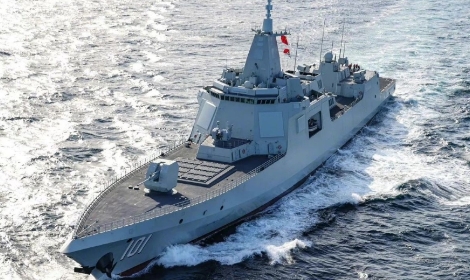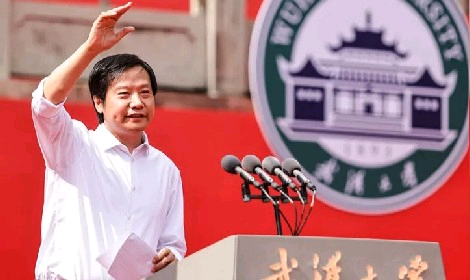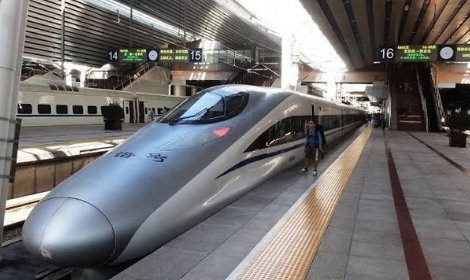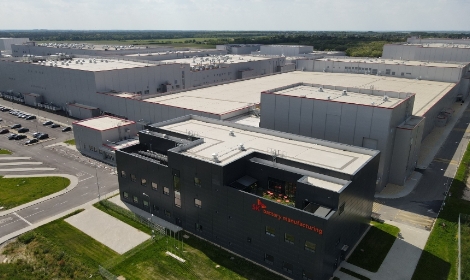印度汽车能与中国电动汽车竞争吗?KB:印度电动汽车产业在核心技术、供应链、成本控制等方面至少与中国差10-15年!
正文翻译
KB:中国电动汽车相对于印度汽车的主要优势之一是它们的比较价格优势。中国电动汽车制造商成功地保持了低成本,主要是由于该国健全的供应链和相对较低的劳动成本。这使他们能够为他们的电动汽车提供有竞争力的定价,吸引了许多印度买家。
另一方面,印度汽车制造商由于诸多因素,包括不发达的供应链和较高的劳动成本,一直在努力保持低成本。因此,印度汽车的价格相对较高,使得它们难以与中国电动汽车竞争。
另一方面,印度汽车制造商由于诸多因素,包括不发达的供应链和较高的劳动成本,一直在努力保持低成本。因此,印度汽车的价格相对较高,使得它们难以与中国电动汽车竞争。
评论翻译
Kanthaswamy Balasubramaniam
Design - Maybe.
设计 - 或许能。
Manufacturing - Not for a long time
制造 - 长时间内不行
Brand - Nopes.
品牌 - 不可能。
We simply can't produce at their level or at their cost
我们根本无法以他们的水平或成本生产。
They actually control core technology vide Battery Technology, Motor Technology and Rare Earth Components
实际上,他们掌控核心技术,包括电池技术、电机技术和稀土元素组件。
They control almost 85% of the Chips which are between 45 nm - 110 nm, all made entirely in China (Designed elsewhere). These aren't smartphone chips.
他们控制了几乎所有在45纳米至110纳米之间的芯片,全部在中国制造(设计在其他地方)。这并不是智能手机芯片。
Every EC manufacturer pays a Royalty to Chinese for their Battery Technology and their Rare Earth Components. Even Raytheon pays 1.66% to China for Rare Earth Component royalties as does Lockheed Martin for the F-35 (0.435%)
每个电动车制造商都要向中国支付电池技术和稀土元素组件的专利费。就连雷神公司也要支付1.66%的稀土元素组件专利费,洛克希德·马丁公司也是为F-35支付0.435%的专利费。
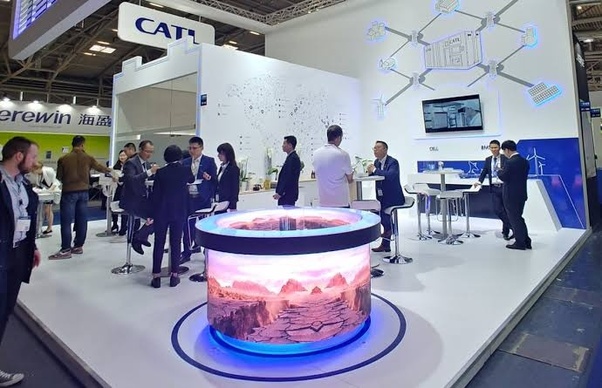
So a Chinese EV selling for $ 42,000 means an Indian EV will sell for at least $ 53,400 including the core technology royalties and higher production costs due to lesser scale
因此,一辆售价42000美元的中国电动车意味着一辆印度电动车的售价至少为53400美元,其中包括核心技术专利费和由于生产规模较小而导致的较高生产成本。
You may pay extra $ 13,400 for a BMW or Audi but not for a Tata or Maruthi in any universe
你可能会为宝马或奥迪多支付13400美元,但在任何情况下都不会为塔塔或马鲁蒂支付这笔费用。
Brandwise Geely or BYD are less popular than Volvo or Tesla or Toyota but India doesn't even have such brands with limited Global exposure in any minimum $ 250 Billion Consumer Market (I said BRAND so dont say Jaguar which is a Foreign Brand)
就品牌而言,吉利或比亚迪比沃尔沃、特斯拉或丰田更不受欢迎,但印度甚至没有在任何至少2500亿美元的消费市场上拥有有限全球曝光的这种品牌(我说的是品牌,不要说是外国品牌的捷豹)。
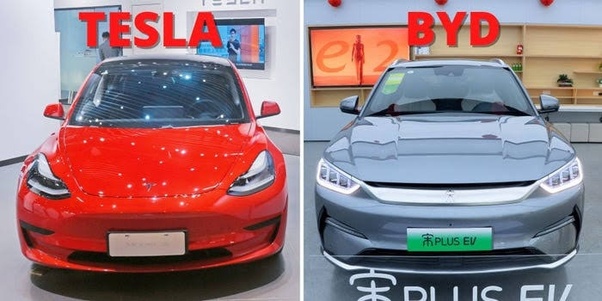
Maybe if we develop Indigenous core technology - not just design but manufacturing stage
也许如果我们发展本土核心技术——不仅是设计而且是制造阶段
Maybe if we develop indigenous core motor technology
也许如果我们发展本土核心电机技术
Maybe if we develop a huge scale of manufacture and make EVs attractive to the populace by pricing them at say 70% of ICE equivalents
也许如果我们发展大规模制造并通过将电动车的定价设定为内燃机车辆等效的70%,使其对公众更具吸引力
Then maybe within 15–20 years, we can get some decent global brands
那么也许在15-20年内,我们可以获得一些体面的全球品牌
Of course by then China would surge far far far ahead
当然,到那时,中国将远远领先
If our Lithium Reserves are proven
如果我们的锂储备数量得到证明
Then it's more likely we will sell the Lithium to China because they still have the core technology and manufacturing
那么更有可能的是我们将把锂卖给中国,因为他们仍然拥有核心技术和制造能力
For at least 10–15 years
至少在10-15年内
Using this money, if we develop R&D and crack Indigenous Technology, that's would be a HUGE BREAK
利用这笔钱,如果我们开展研发并突破本土技术,那将是一个巨大的突破
Car's & Auto's, tech support, weight loss, fitness ·

In recent years, the global automotive industry has been experiencing a major shift towards electric vehicles (EVs). As a result, Chinese electric car makers have gained significant traction in various markets worldwide, including India. However, the question remains: can Indian cars compete with Chinese electric cars in the race to dominate the Indian market?
最近几年,全球汽车行业经历了向电动车辆(EVs)的重大转变。因此,中国电动汽车制造商在包括印度在内的全球各个市场上获得了显著的吸引力。然而,问题仍然存在:印度车能否在印度市场主导竞争中与中国电动车竞争?
Comparative Price Advantage: A Major Factor
比较价格优势:主要因素
One of the primary advantages that Chinese electric cars have over Indian cars is their comparative price advantage. Chinese EV manufacturers have managed to keep their costs low, mainly due to the country's robust supply chain and relatively low labor costs. This has allowed them to offer competitive pricing for their EVs, which has attracted many buyers in India.
中国电动汽车相对于印度汽车的主要优势之一是它们的比较价格优势。中国电动汽车制造商成功地保持了低成本,主要是由于该国健全的供应链和相对较低的劳动成本。这使他们能够为他们的电动汽车提供有竞争力的定价,吸引了许多印度买家。
On the other hand, Indian automakers have struggled to keep their costs low due to several factors, including a less developed supply chain and higher labor costs. As a result, the prices of Indian cars have remained relatively high, making it challenging for them to compete with Chinese electric cars.
另一方面,印度汽车制造商由于诸多因素,包括不发达的供应链和较高的劳动成本,一直在努力保持低成本。因此,印度汽车的价格相对较高,使得它们难以与中国电动汽车竞争。
However, Indian car manufacturers are not sitting idle either. They have also started investing heavily in R&D to develop their own EVs to compete with Chinese electric cars. With the Indian government's push towards electric mobility, Indian automakers are under pressure to develop affordable and sustainable electric vehicles that can compete with Chinese electric cars.
然而,印度汽车制造商也没有坐以待毙。他们也开始大力投资研发,开发自己的电动汽车,以与中国电动汽车竞争。随着印度政府推动电动出行,印度汽车制造商面临着开发能够与中国电动汽车竞争的经济实惠和可持续的电动车辆的压力。
In conclusion, the race to dominate the Indian market between Indian cars and Chinese electric cars is far from over. The battle will continue, and only time will tell who will emerge victorious. However, one thing is for sure: Indian automakers need to act fast to catch up with Chinese electric car makers if they want to remain competitive in the evolving global automotive industry.
总之,印度汽车和中国电动汽车在印度市场主导竞争中的角逐远未结束。战斗将继续,只有时间能告诉我们谁将脱颖而出。然而,有一点是确定的:如果印度汽车制造商想要在不断发展的全球汽车工业中保持竞争力,他们需要迅速行动以赶上中国电动汽车制造商。
Hardik Shetty
Yes of course, Indian vehicles can rival Chinese electric vehicles. India is well-positioned to compete with China in this market due to its fast expanding electric vehicle (EV) market and robust manufacturing infrastructure. India is spending a lot of money on EV infrastructure, research, and development in order to electrify its entire fleet of vehicles.
是的,当然,印度的车辆可以与中国的电动车竞争。由于其快速扩大的电动汽车(EV)市场和强大的制造基础设施,印度在这个市场上与中国的竞争处于非常有利的位置。印度正在为电动汽车基础设施、研究和开发投入大量资金,以电气化武装其整个车队。
Tata Motors and Mahindra Electric, two Indian manufacturers, already manufacture and market electric vehicles in their home country and other nations. These businesses possess the knowledge and tools necessary to produce high-caliber EVs that are competitive with Chinese vehicles.
塔塔汽车和马辛德拉电动汽车,两家印度制造商,已经在他们的本国和其他国家制造和推广电动汽车。这些企业拥有生产与中国车辆竞争的高品质电动汽车所需的知识和工具。
Also, India has a sizable local market for EVs, which might spur innovation and lower costs. India also has a considerable advantage in terms of in terms of labour expenses, which may give it the upper hand over China in terms of manufacturing costs.
此外,印度有一个庞大的电动汽车本地市场,这可能促使创新并降低成本。在劳动成本方面,印度在制造成本方面可能占据优势。
Also, India is the location of several creative startups that are creating cutting-edge EV technology, such as battery swapping and vehicle-to-grid (V2G) systems. These startups are closely collaborating with Indian manufacturers and may help them get a competitive edge in the global EV industry.
此外,印度是一些创新初创企业的所在地,这些企业正在开发尖端的电动汽车技术,如电池交换和车辆对电网(V2G)系统。这些初创企业与印度制造商密切合作,可能帮助他们在全球电动汽车行业中获得竞争优势。
Kanthaswamy Balasubramaniam
Related
Why did India and China fight for TESLA in 2021?
相关讨论
为什么印度和中国在2021年争夺特斯拉?
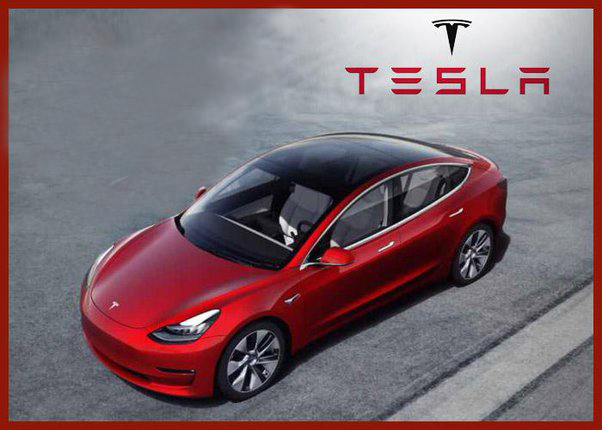
There is no Fight
Tesla wants to expand in China very badly.
Musk has access to everything - Superb Manufacturing Environment, Excellent Battery Manufacture Facility, Available Lithium, Neometals, Aluminium etc.
And the Largest Market for Electric Vehicles in the world.
Sadly - the Chinese want their own local industries to control EV Battery Technology and Electric Vehicles. SAIC, Great Wall etc are spending billions in research to compete and challenge Tesla at least in China.
So the Chinese did not allow Tesla any expansion opportunity and have made it tougher for him by rising the competition.
Musk initially opted to manufacture in India in 2018 but backed out. In 2021 he was forced to expand in India because he had no other choice.
He has no skill,no environment, has to import everything from China etc. That alone is a huge let down.
Of course - He doesnt have any dreams of conquering the Indian EV Market. He knows it would be 30 years before such a market becomes even quarter way profitable.
So its not India and China fight for Tesla
Tesla is stuck with India.
根本不存在争夺
特斯拉非常想要在中国扩张。
马斯克拥有一切——出色的制造环境,优秀的电池制造设施,可用的锂、新金属、铝等。
以及世界上最大的电动汽车市场。
遗憾的是,中国希望拥有自己的本地产业来控制电动汽车电池技术和电动汽车。上汽、长城等公司正在进行数十亿美元的研究,以至少在中国挑战特斯拉。
因此,中国没有给予特斯拉任何扩张机会,并通过提高竞争使其变得更加困难。
2018年,马斯克最初选择在印度制造,但后来放弃了。2021年,由于别无选择,他被迫在印度扩张。
他没有技能,没有环境,必须从中国进口一切等。这本身就是一个巨大的让人失望的地方。
当然,他并没有征服印度电动汽车市场的梦想。他知道在这样一个市场盈利甚至获得1/4盈利之前,还需要30年。
所以这不是印度和中国争夺特斯拉。
而是特斯拉被困在印度。
Design - Maybe.
设计 - 或许能。
Manufacturing - Not for a long time
制造 - 长时间内不行
Brand - Nopes.
品牌 - 不可能。
We simply can't produce at their level or at their cost
我们根本无法以他们的水平或成本生产。
They actually control core technology vide Battery Technology, Motor Technology and Rare Earth Components
实际上,他们掌控核心技术,包括电池技术、电机技术和稀土元素组件。
They control almost 85% of the Chips which are between 45 nm - 110 nm, all made entirely in China (Designed elsewhere). These aren't smartphone chips.
他们控制了几乎所有在45纳米至110纳米之间的芯片,全部在中国制造(设计在其他地方)。这并不是智能手机芯片。
Every EC manufacturer pays a Royalty to Chinese for their Battery Technology and their Rare Earth Components. Even Raytheon pays 1.66% to China for Rare Earth Component royalties as does Lockheed Martin for the F-35 (0.435%)
每个电动车制造商都要向中国支付电池技术和稀土元素组件的专利费。就连雷神公司也要支付1.66%的稀土元素组件专利费,洛克希德·马丁公司也是为F-35支付0.435%的专利费。

So a Chinese EV selling for $ 42,000 means an Indian EV will sell for at least $ 53,400 including the core technology royalties and higher production costs due to lesser scale
因此,一辆售价42000美元的中国电动车意味着一辆印度电动车的售价至少为53400美元,其中包括核心技术专利费和由于生产规模较小而导致的较高生产成本。
You may pay extra $ 13,400 for a BMW or Audi but not for a Tata or Maruthi in any universe
你可能会为宝马或奥迪多支付13400美元,但在任何情况下都不会为塔塔或马鲁蒂支付这笔费用。
Brandwise Geely or BYD are less popular than Volvo or Tesla or Toyota but India doesn't even have such brands with limited Global exposure in any minimum $ 250 Billion Consumer Market (I said BRAND so dont say Jaguar which is a Foreign Brand)
就品牌而言,吉利或比亚迪比沃尔沃、特斯拉或丰田更不受欢迎,但印度甚至没有在任何至少2500亿美元的消费市场上拥有有限全球曝光的这种品牌(我说的是品牌,不要说是外国品牌的捷豹)。

Maybe if we develop Indigenous core technology - not just design but manufacturing stage
也许如果我们发展本土核心技术——不仅是设计而且是制造阶段
Maybe if we develop indigenous core motor technology
也许如果我们发展本土核心电机技术
Maybe if we develop a huge scale of manufacture and make EVs attractive to the populace by pricing them at say 70% of ICE equivalents
也许如果我们发展大规模制造并通过将电动车的定价设定为内燃机车辆等效的70%,使其对公众更具吸引力
Then maybe within 15–20 years, we can get some decent global brands
那么也许在15-20年内,我们可以获得一些体面的全球品牌
Of course by then China would surge far far far ahead
当然,到那时,中国将远远领先
If our Lithium Reserves are proven
如果我们的锂储备数量得到证明
Then it's more likely we will sell the Lithium to China because they still have the core technology and manufacturing
那么更有可能的是我们将把锂卖给中国,因为他们仍然拥有核心技术和制造能力
For at least 10–15 years
至少在10-15年内
Using this money, if we develop R&D and crack Indigenous Technology, that's would be a HUGE BREAK
利用这笔钱,如果我们开展研发并突破本土技术,那将是一个巨大的突破
Car's & Auto's, tech support, weight loss, fitness ·

In recent years, the global automotive industry has been experiencing a major shift towards electric vehicles (EVs). As a result, Chinese electric car makers have gained significant traction in various markets worldwide, including India. However, the question remains: can Indian cars compete with Chinese electric cars in the race to dominate the Indian market?
最近几年,全球汽车行业经历了向电动车辆(EVs)的重大转变。因此,中国电动汽车制造商在包括印度在内的全球各个市场上获得了显著的吸引力。然而,问题仍然存在:印度车能否在印度市场主导竞争中与中国电动车竞争?
Comparative Price Advantage: A Major Factor
比较价格优势:主要因素
One of the primary advantages that Chinese electric cars have over Indian cars is their comparative price advantage. Chinese EV manufacturers have managed to keep their costs low, mainly due to the country's robust supply chain and relatively low labor costs. This has allowed them to offer competitive pricing for their EVs, which has attracted many buyers in India.
中国电动汽车相对于印度汽车的主要优势之一是它们的比较价格优势。中国电动汽车制造商成功地保持了低成本,主要是由于该国健全的供应链和相对较低的劳动成本。这使他们能够为他们的电动汽车提供有竞争力的定价,吸引了许多印度买家。
On the other hand, Indian automakers have struggled to keep their costs low due to several factors, including a less developed supply chain and higher labor costs. As a result, the prices of Indian cars have remained relatively high, making it challenging for them to compete with Chinese electric cars.
另一方面,印度汽车制造商由于诸多因素,包括不发达的供应链和较高的劳动成本,一直在努力保持低成本。因此,印度汽车的价格相对较高,使得它们难以与中国电动汽车竞争。
However, Indian car manufacturers are not sitting idle either. They have also started investing heavily in R&D to develop their own EVs to compete with Chinese electric cars. With the Indian government's push towards electric mobility, Indian automakers are under pressure to develop affordable and sustainable electric vehicles that can compete with Chinese electric cars.
然而,印度汽车制造商也没有坐以待毙。他们也开始大力投资研发,开发自己的电动汽车,以与中国电动汽车竞争。随着印度政府推动电动出行,印度汽车制造商面临着开发能够与中国电动汽车竞争的经济实惠和可持续的电动车辆的压力。
In conclusion, the race to dominate the Indian market between Indian cars and Chinese electric cars is far from over. The battle will continue, and only time will tell who will emerge victorious. However, one thing is for sure: Indian automakers need to act fast to catch up with Chinese electric car makers if they want to remain competitive in the evolving global automotive industry.
总之,印度汽车和中国电动汽车在印度市场主导竞争中的角逐远未结束。战斗将继续,只有时间能告诉我们谁将脱颖而出。然而,有一点是确定的:如果印度汽车制造商想要在不断发展的全球汽车工业中保持竞争力,他们需要迅速行动以赶上中国电动汽车制造商。
Hardik Shetty
Yes of course, Indian vehicles can rival Chinese electric vehicles. India is well-positioned to compete with China in this market due to its fast expanding electric vehicle (EV) market and robust manufacturing infrastructure. India is spending a lot of money on EV infrastructure, research, and development in order to electrify its entire fleet of vehicles.
是的,当然,印度的车辆可以与中国的电动车竞争。由于其快速扩大的电动汽车(EV)市场和强大的制造基础设施,印度在这个市场上与中国的竞争处于非常有利的位置。印度正在为电动汽车基础设施、研究和开发投入大量资金,以电气化武装其整个车队。
Tata Motors and Mahindra Electric, two Indian manufacturers, already manufacture and market electric vehicles in their home country and other nations. These businesses possess the knowledge and tools necessary to produce high-caliber EVs that are competitive with Chinese vehicles.
塔塔汽车和马辛德拉电动汽车,两家印度制造商,已经在他们的本国和其他国家制造和推广电动汽车。这些企业拥有生产与中国车辆竞争的高品质电动汽车所需的知识和工具。
Also, India has a sizable local market for EVs, which might spur innovation and lower costs. India also has a considerable advantage in terms of in terms of labour expenses, which may give it the upper hand over China in terms of manufacturing costs.
此外,印度有一个庞大的电动汽车本地市场,这可能促使创新并降低成本。在劳动成本方面,印度在制造成本方面可能占据优势。
Also, India is the location of several creative startups that are creating cutting-edge EV technology, such as battery swapping and vehicle-to-grid (V2G) systems. These startups are closely collaborating with Indian manufacturers and may help them get a competitive edge in the global EV industry.
此外,印度是一些创新初创企业的所在地,这些企业正在开发尖端的电动汽车技术,如电池交换和车辆对电网(V2G)系统。这些初创企业与印度制造商密切合作,可能帮助他们在全球电动汽车行业中获得竞争优势。
Kanthaswamy Balasubramaniam
Related
Why did India and China fight for TESLA in 2021?
相关讨论
为什么印度和中国在2021年争夺特斯拉?

There is no Fight
Tesla wants to expand in China very badly.
Musk has access to everything - Superb Manufacturing Environment, Excellent Battery Manufacture Facility, Available Lithium, Neometals, Aluminium etc.
And the Largest Market for Electric Vehicles in the world.
Sadly - the Chinese want their own local industries to control EV Battery Technology and Electric Vehicles. SAIC, Great Wall etc are spending billions in research to compete and challenge Tesla at least in China.
So the Chinese did not allow Tesla any expansion opportunity and have made it tougher for him by rising the competition.
Musk initially opted to manufacture in India in 2018 but backed out. In 2021 he was forced to expand in India because he had no other choice.
He has no skill,no environment, has to import everything from China etc. That alone is a huge let down.
Of course - He doesnt have any dreams of conquering the Indian EV Market. He knows it would be 30 years before such a market becomes even quarter way profitable.
So its not India and China fight for Tesla
Tesla is stuck with India.
根本不存在争夺
特斯拉非常想要在中国扩张。
马斯克拥有一切——出色的制造环境,优秀的电池制造设施,可用的锂、新金属、铝等。
以及世界上最大的电动汽车市场。
遗憾的是,中国希望拥有自己的本地产业来控制电动汽车电池技术和电动汽车。上汽、长城等公司正在进行数十亿美元的研究,以至少在中国挑战特斯拉。
因此,中国没有给予特斯拉任何扩张机会,并通过提高竞争使其变得更加困难。
2018年,马斯克最初选择在印度制造,但后来放弃了。2021年,由于别无选择,他被迫在印度扩张。
他没有技能,没有环境,必须从中国进口一切等。这本身就是一个巨大的让人失望的地方。
当然,他并没有征服印度电动汽车市场的梦想。他知道在这样一个市场盈利甚至获得1/4盈利之前,还需要30年。
所以这不是印度和中国争夺特斯拉。
而是特斯拉被困在印度。



